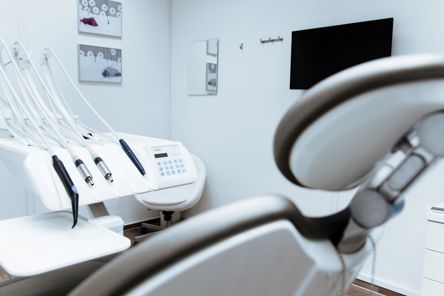At SEKO, we recognize that compliance is crucial when handling and transporting pharmaceuticals, medical equipment, tissue samples, and other medical commodities. Failure to adhere to relevant regulations can put patients at risk and lead to stiff penalties or business disruption. In this comprehensive guide, we’ll delve into the key regulations impacting medical logistics and provide best practices for developing a robust compliance program.
OVERVIEW OF APPLICABLE REGULATIONS
Numerous local, state, federal, and global regulations apply to companies involved in medical logistics. Key agencies and regulations include:
Food and Drug Administration (FDA)
Drug Supply Chain Security Act (DSCSA) – Outlines steps to build an electronic, interoperable system to identify and trace certain prescription drugs as they are distributed in the U.S. Includes product tracing, verification, notification, detection and response requirements.
Food Safety Modernization Act (FSMA) – Aims to ensure safety of food from intentional contamination during transportation. Requires compliance with sanitation rules for vehicles and storage of food.
Current Good Manufacturing Practice (CGMP) – Quality standards for designing, monitoring, and maintaining proper control of manufacturing processes and facilities.
Guidelines for Temperature-Controlled Medicinal Products – Recommendations for proper storage and transportation of pharmaceuticals with specific temperature requirements.
Drug Enforcement Administration (DEA)
DEA Regulations – Govern licensing, security, recordkeeping, inventory, transportation, and disposal of controlled substances and pharmaceuticals with potential for abuse.
Controlled Substances Act – Provides federal U.S. drug policy for regulating manufacture, importation, possession, use of certain narcotics, stimulants, depressants, hallucinogens, and anabolic steroids.
Department of Transportation (DOT)
Hazardous Materials Regulations – Outlines definitions, training requirements, security planning, and shipping standards for transport of hazardous materials including infectious substances and select agents.
Federal Motor Carrier Safety Administration (FMCSA) Regulations – Governs qualifications, training, and hours of service for commercial vehicle drivers transporting goods including medical supplies.
Occupational Safety and Health Administration (OSHA)
Bloodborne Pathogens Standard – Details handling and disposal requirements for medical materials that present potential exposure to infectious agents.
Hazard Communication Standard – Requires development of hazard classification procedures and labeling systems to protect workers from toxic exposures.
International Air Transport Association (IATA)
Dangerous Goods Regulations – Global standard for shipping hazardous materials and dangerous goods by air. Contains requirements for classifying, packaging, marking, labeling, and documenting shipments.
Temperature Control Regulations – Standards for shipping pharmaceuticals including preparation, packaging, markings, documentation, handling, and monitoring measures.
Individual U.S. State Regulations
Pharmacy laws – Rules for wholesale distribution, manufacturing, repackaging, storage conditions, licensing, and sale of pharmaceuticals. Requirements vary by state.
Medical waste regulations – State-by-state rules on handling, storage, treatment, transportation, and disposal of regulated medical waste.
BEST PRACTICES FOR COMPLIANCE
SEKO leverages over a decade of medical logistics expertise to maintain compliance across our operations. Recommended best practices start with maintaining accessible, well-organized records, whether paper or electronic. These records should capture key details like dates, personnel involved, inventory counts, order details, shipping info, any discrepancies, destroy dates, and more. Proper record storage and retention periods should be followed.
It's also critical to validate and routinely audit all business partners, including suppliers, carriers, 3PLs, tech vendors and so on. This ensures any external party you work with adheres to the same regulatory standards. Developing clearly documented standard operating procedures for processes like order management, storage, loading/unloading, inventory control, security, training, and handling deviations enables consistency and aids compliance.
Robust employee training should include onboarding and annual refreshers focused on both Standard Operating Procedures (SOPs) and regulatory requirements. Maintaining detailed training records provides evidence of due diligence. Compliance technologies also play a key role, from temperature monitors to Electronic Data Interchange (EDI) systems, barcode scanners, GPS tracking, sensors, alarms, access controls and inventory management software. These provide security, oversight, and visibility across operations.
Regular internal and external quality audits help proactively identify any potential compliance gaps that should be addressed. It's wise to assign personnel to actively monitor for regulatory changes from agencies like the FDA, DEA, USP, and DOT to ensure your compliance program adapts as regulations evolve. If issues do occur, swift response is mandatory. Problems should be contained, root causes investigated, procedures updated, and personnel re-trained to prevent recurrence. Finally, developing key performance indicators provides metrics to measure the effectiveness of the compliance program for continuous improvement.
ELEMENTS OF A ROBUST COMPLIANCE PROGRAM
At SEKO, we integrate compliance across every aspect of our operations. Our comprehensive program includes:
- Compliance Management System – Documents all our policies, processes, procedures, training plans, and monitoring/improvement programs. Provides framework for governance.
- Technology Controls – We utilize EDI, GPS tracking, barcode scanning, fleet tracking, access control, alarms, data loggers, backups, and other systems for security, monitoring, and inventory visibility.
- Facility and Quality Controls – Our warehouses follow rigorous CGMPs (Current Good Manufacturing Practices), security protocols, sanitation, pest control, refrigeration/freezer SOPs, and maintenance procedures.
- Supply Chain Partner Controls – Through questionnaires and on-site audits, we validate suppliers, 3PLs, carriers, tech vendors, etc. meet our standards.
- Employee Screening and Training – All employees undergo background checks plus regular training on SOPs, safety protocols, security, and regulations.
- Recordkeeping and Documentation – We maintain organized records of purchases, inventory, orders, personnel, deviations, destroy dates, returns, quality incidents, training, complaints and more.
- Internal Audits – Self-inspections performed routinely to verify conformance to procedures and identify opportunities for improvement.
- External Audits – We undergo independent audits by customers and authorities, like the FDA, to hold our program accountable.
- Deviations and CAPA (Corrective and Preventive Actions) – Clear protocols for reporting deviations, investigating root causes, containing issues, and implementing corrective/preventative actions.
- Data Analysis and Metrics – Key performance indicators help us measure effectiveness of our controls and drive continuous improvement.
Compliance in the highly-regulated medical logistics industry requires extensive expertise and diligent oversight of operations. At SEKO, we have over a decade of experience navigating international, federal, state, and local regulations. Our comprehensive compliance program is modeled after global standards to cover all aspects of governance, recordkeeping, employee training, facility and supply chain controls, auditing, and continuous improvement.
SEKO’s goal is to make compliance second nature, not a burden. Our solutions are designed to optimize efficiency while keeping your medical supply chain secure and inspection-ready. Don't leave regulatory compliance to chance. Contact the experts at SEKO today to learn more about our compliance services and technology solutions.





